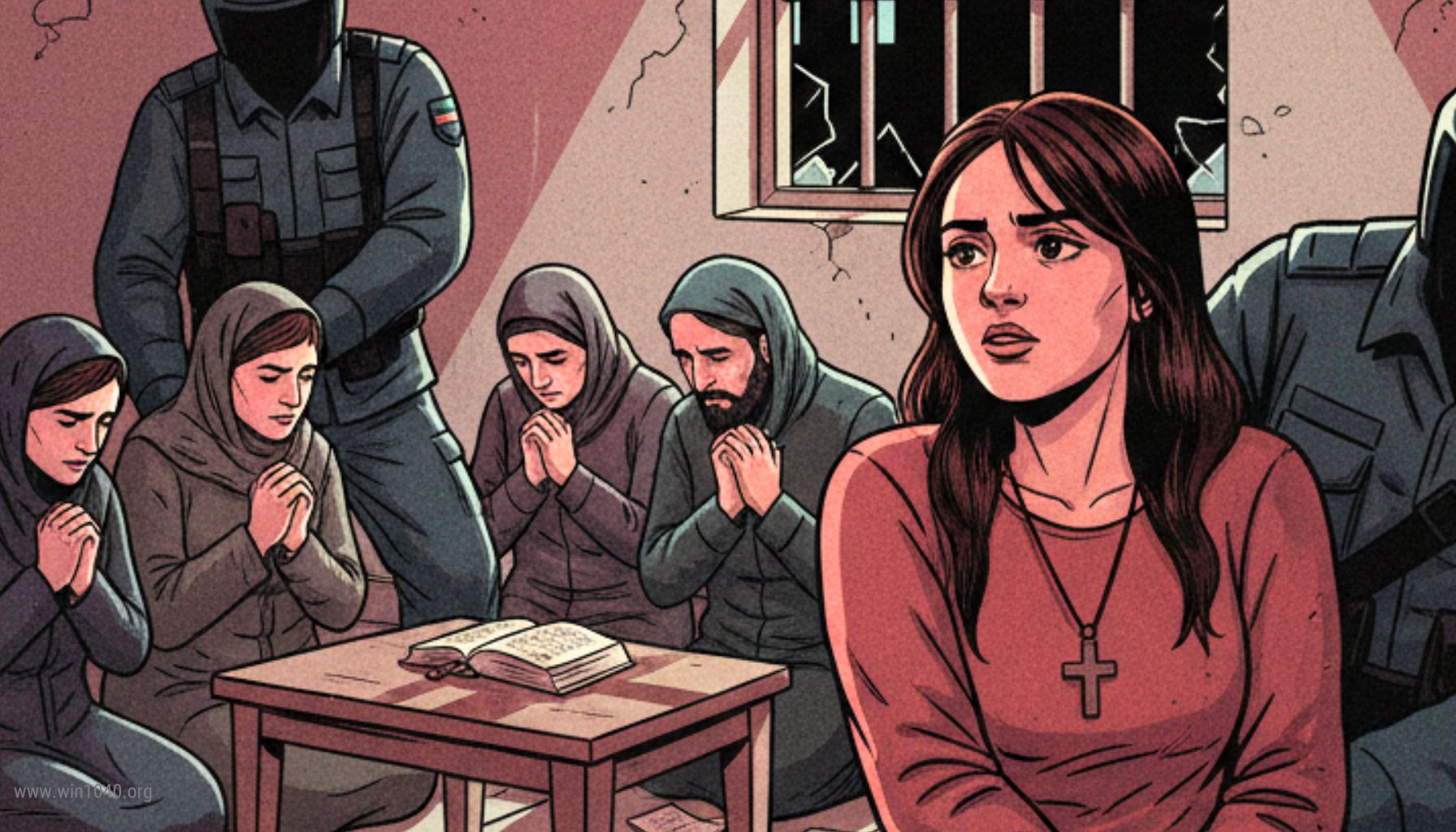Iran
Population: 82 million
Christians: Less than one %
Dominant religion: Shia Islam
Persecution ranking: 9
Persecution of Christians in Iran is as old as the church. Even in the 300s, when Christianity first became acceptable in the Roman Empire, it was rejected by the Persians. Roman Emperor Constantine asked his rival, the Persian emperor, to show “kindness” to the Christians in his realm, resulting in a backlash against Christians. Iranian political leadership has opposed minority religions many times in its long history. Hostility towards Christians intensified after the 1979 Iranian Revolution, which established a Shia Muslim theocracy. The theocrats allowed traditional Christians, namely Armenian and Assyrians, to continue their practices, so long as they didn’t admit Muslims to their services or make converts. They drew the line on spreading the Gospel to Muslims.
Iran’s theocrats increased their opposition to Christianity in 2024. Imprisonments surged six times over. The assigned number of years in jail for convicted Christians rose from 43 to 263 in one year. They are especially targeting those who convert from Islam to Christianity.
Why the opposition? To understand, one must know what the Iranian government is trying to achieve. Religion is the foundation of their power. Every person who looks away from Shia Islam for the truth is one less person they can control. They know that faith in Christ can multiply, leading entire families away from their authority. In a theocracy, religion and state are inseparable. They view deviation from the state religion as a form of rebellion against the state. Every oppressive state needs an enemy to rally the faithful against. Christianity, and any nation perceived as “Christian,” is perceived as an enemy of the state. Therefore, they think funds coming from Christian nations are attempts by outsiders to undermine their nation.
The Iranian government is digging its own grave in two ways. They oppress their people, giving good reasons to rebel. Secondly, they demand a form of “righteousness” that they themselves violate with wicked behavior. The government frowns upon music, the language of the heart in Iranian culture. By doing this, when Iranian Muslims want to hear joyous music, they gravitate to Christian gatherings, which offer a respite from their dismal lives. The teachings of Jesus Christ that they hear in fellowships offer true righteousness and mercy for the powerless. For example, the Iranian government forces women to wear a hijab, a sign of subservience. By contrast, Jesus gave dignity and respect to the women in his life. This is one of the reasons Christianity is often associated with women’s rights in Iran.
The Iranian government shut down many churches in 2013, forcing more Christians to meet in homes. It’s much harder for government officials to locate home fellowships than church buildings. Without the government knowing where Christians are meeting, Muslims can more easily hear the gospel and celebratory music that brings joy to their hearts. The Iranian church also utilizes social media and other digital tools that the government can’t easily monitor.
Persecution will continue as Iran’s theocracy resorts to cruel intimidation. Christians will be pressured to abandon their faith, not meet with others, or spread the faith to Muslims. When the government imprisons Christians, God’s children often experience a deeper sense of fellowship with the King of kings. The Iranian government reacts by giving incarcerated Christians solitary confinement. To stand firm, the Iranian brethren will need prayer so they can respond in the Spirit rather than the flesh.
Let us pray fervently for:
Courage, wisdom, and spiritual strength for those who are oppressed or jailed (The Bible, Acts 2:42).
The Church to persevere in meeting together and spreading the hope of the gospel (The Bible, Jude 1:20-23).
Sauls to become Pauls, who will turn the hearts of many to Christ, even within the Iranian government (The Bible, Acts 9:1-6).
Sources:
Christian Post. Iranian Christians faced sixfold increase in prison sentences in 2024: report. January 24, 2025.
Christian Post. Iranian Christians haven’t stopped fighting. Don’t forget them. July 6, 2024.
The Times of Israel. The Silent War: Persecution of Christians in Iran. April 9, 2024.
Persecution.org. Freedom Focus Report: Despite Government Persecution, the Iranian Church Grows. July 24, 2023.

